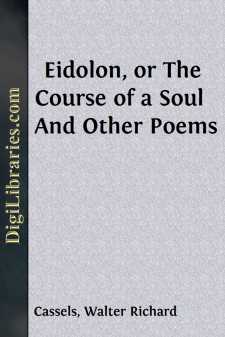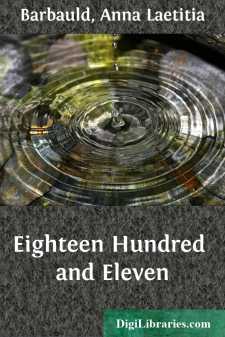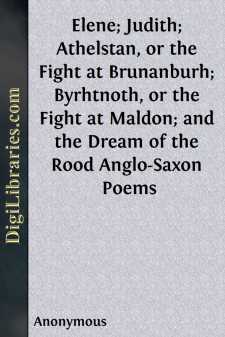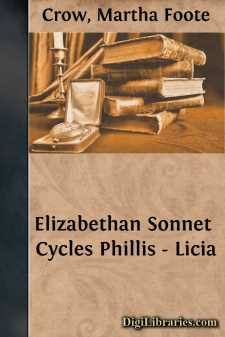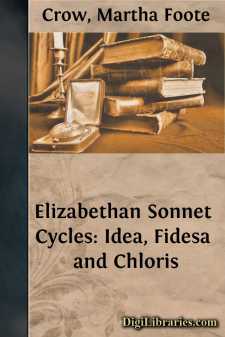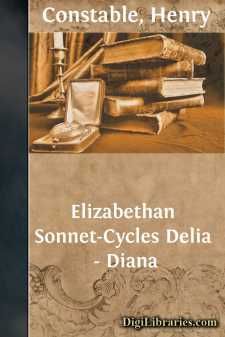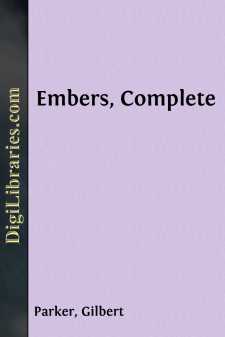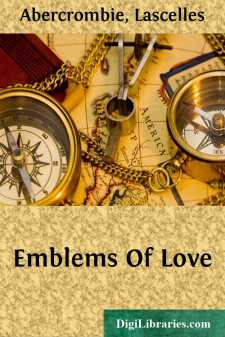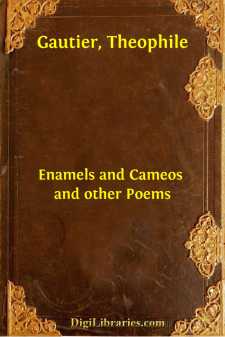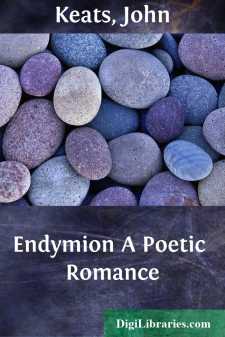Poetry Books
Sort by:
INTRODUCTION TO EIDOLON. Hazlitt says, one cannot "make an allegory go on all fours," it must to a certain degree be obscure and shadowy, like the images which the traveller in the desert sees mirrored on the heavens, wherein he can trace but a dreamy resemblance to the reality beneath. It therefore seems to me advisable to give a solution of the "Eidolon," the symbol, which follows,...
more...
EIGHTEEN HUNDRED AND ELEVEN. Still the loud death drum, thundering from afar,O'er the vext nations pours the storm of war:To the stern call still Britain bends her ear,Feeds the fierce strife, the alternate hope and fear;Bravely, though vainly, dares to strive with Fate,And seeks by turns to prop each sinking state.Colossal Power with overwhelming force [2]Bears down each fort of Freedom in its...
more...
by:
Anonymous
INTRODUCTION. In presenting to the public the following translations of the Old English (Anglo-Saxon) poems, Elene, Judith, Athelstan, Byrhtnoth, and The Dream of the Rood, it is desirable to prefix a brief account of them for the information of the general reader. I. The Elene, or Helena, is a poem on the expedition of the Empress Helena, mother of Constantine the Great, the first Christian emperor,...
more...
INTRODUCTION The last decade of the sixteenth century was marked by an outburst of sonneteering. To devotees of the sonnet, who find in that poetic form the moat perfect vehicle that has ever been devised for the expression of a single importunate emotion, it will not seem strange that at the threshold of a literary period whose characteristic note is the most intense personality, the instinct of poets...
more...
The true story of the life of Michael Drayton might be told to, vindicate the poetic traditions of the olden time. A child-poet wandering in fay-haunted Arden, or listening to the harper that frequented the fireside of Polesworth Hall where the boy was a petted page, later the honoured almoner of the bounty of many patrons, one who "not unworthily," as Tofte said, "beareth the name of the...
more...
by:
Henry Constable
SAMUEL DANIEL Daniel's sonnet series has been by many regarded as the prototype of Shakespeare's. It is true that several of Daniel's themes are repeated in the cycle composed by the greater poet. The ideas of immortality in verse, the transitoriness of beauty, the assurances of truth, the humility and the woes of the lover, the pain of separation and the comfort of night thoughts, shape...
more...
by:
Gilbert Parker
PROEM And the Angel said:"What hast thou for all thy travail—what dost thou bring with thee outof the dust of the world?" And the man answered:"Behold, I bring one perfect yesterday!" And the Angel questioned:"Hast thou then no to-morrow?Hast thou no hope?" And the man replied:"Who am I that I should hope!Out of all my life I have been granted onesheaf of memory." And...
more...
PRELUDE Night on bleak downs; a high grass-grown trench runs athwart the slope. The earthwork is manned by warriors clad in hides. Two warriors, BRYS and GAST, talking. Gast.This puts a tall heart in me, and a tuneOf great glad blood flowing brave in my flesh,To see thee, after all these moons, returned,My Brys. If there's no rust in thy shoulder-joints,That battle-wrath of thine, and thy good...
more...
THE GOD AND THE OPALTO THÉOPHILE GAUTIER Gray caught he from the cloud, and green from earth,And from a human breast the fire he drew,And life and death were blended in one dew.A sunbeam golden with the morning's mirth,A wan, salt phantom from the sea, a girthOf silver from the moon, shot colour throughThe soul invisible, until it grewTo fulness, and the Opal Song had birth. And then the god...
more...
by:
John Keats
PREFACE. Knowing within myself the manner in which this Poem has been produced, it is not without a feeling of regret that I make it public. What manner I mean, will be quite clear to the reader, who must soon perceive great inexperience, immaturity, and every error denoting a feverish attempt, rather than a deed accomplished. The two first books, and indeed the two last, I feel sensible are not of...
more...


